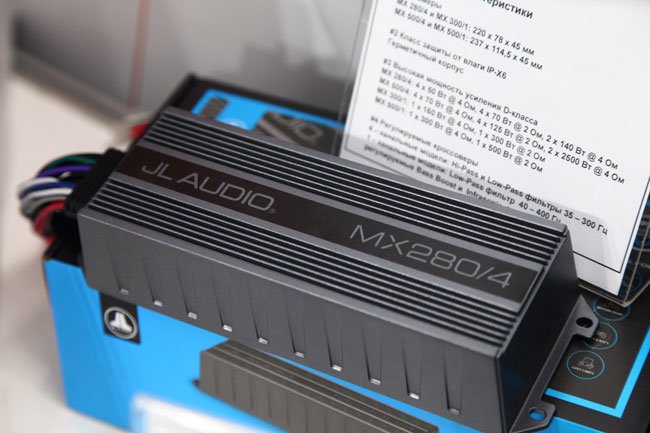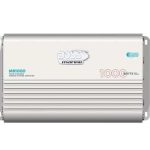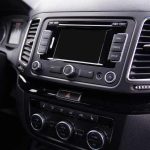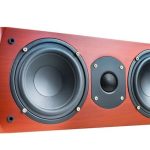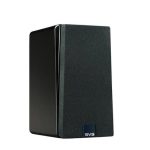Marine amplifiers and car amplifiers perform the primary function of amplifying sound signals from the source. There are several brands that specialize in making both categories of amps, so you can find the right model for your desired use, whether vehicular or marine.
The notion that either of the two types of amps can work in a car or in a marine automobile is popular among users. We consider this notion rather misinformed, and we believe that knowing the fundamental differences between marine and car amplifiers can help a great deal when you are out shopping. This 4-minute write-up explains the major differences between marine and car amplifiers in a bid to answer frequently asked questions such as:
Can a car amp be installed in a boat, and how does it perform?
Can a marine amp work in a car?
Can I ‘marinize’ a car amp?
Let’s get right into the differences.
Major differences between Car Amplifiers and Marine Amplifiers
i. Appearance
Most marine amps have white colors and feature a boat-oriented/marine design. On the other hand, car amps are mostly black in color. Thus, white colors on the exterior of an amp are probably the most visible indication that the amp is marine-oriented.
More physical differences can be discovered when the amp’s interior is accessed.
ii. Protection against weather extremes

Unlike car amplifiers, marine amps are designed to withstand more difficult environments such as heavy humidity, extreme outdoor temperature, and salt sprays. Designers of marine amps add protective features to the amp structure to reduce the effects of adverse environmental conditions on marine amplifiers.
Different models and designs of marine amps come with additional sealing that prevents water/moisture from entering into the amp’s interior. In most amp designs, the extra protection is usually in the form of a hard, epoxy-like coating that prevents oxidation and corrosion in different parts of the amp, especially the circuit board and resistors. This layer also protects solder points and electrical conductors from mechanical damage.
It’s important to note that although marine amps are moisture- and corrosion-resistant, they are not exactly waterproof – as frequently marketed. They should not be submerged in water because water can get trapped in resistors and crossover controls, which would cause damage immediately or shortly after.
iii. Corrosion-resistant hardware
Car amplifiers are mostly designed with anodized heat sinks, steel plates, and steel hardware. On the other hand, marine amplifiers feature powder-coated heat sinks, aluminum end & bottom plates, and stainless-steel hardware. The use of metals that are more resistant to corrosion compared to the ones used in car amps enhances the weather resistance requirements of marine amps.
iv. Wiring differences
Audio and power connections on marine and car amps are similar. The differences come in wiring systems. First, audio signal sources and remote on-wire sources on yachts and boats are different from those on cars. Secondly, a good number of boats use two or more batteries, which means wiring has to be done differently. Another thing that extends the variation in the wiring between car and marine amps is the fact that, unlike trucks and cars, the majority of boats have fiberglass bodies.
Due to these differences, one should keep in mind the following points when wiring marine amps:
- The remote-on lead wire may have several sources – an ignition switch, remote radio, or a switch output for an accessory on the control panel.
- When using speaker-level inputs from a marine stereo, some amplifiers provide an auto-sensing feature for switching the amplifier on and off. This feature offers a great way to avoid using a remote-on wire.
- The ground (-) wire from the amp must run to the battery used to supply power, and it should be of the same length as the power cable.
A standard wiring kit for a car amp is just fine for marine amp wiring, but having an extra length of ground wire, and a water-resistant fuse holder, is recommended.
v. Heat dissipation
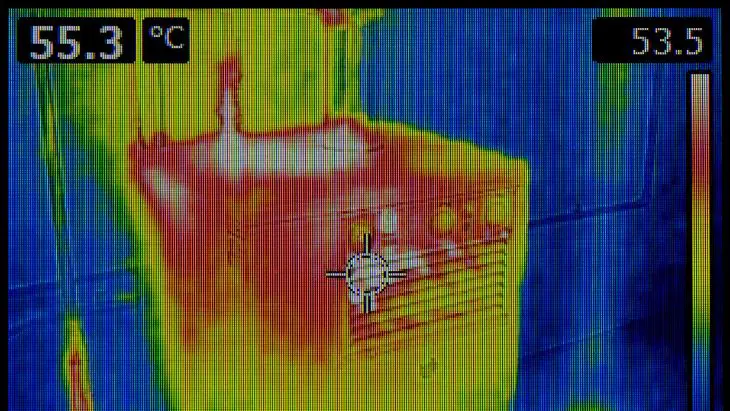
The water-resistant conformal coating on a marine amp’s circuit board does a great job of protecting the amplifier from extreme weather elements. However, this waterproofing has some downsides, and less efficient heat dissipation is one of those downsides. Car amplifiers are designed in such a way that heat transfer is much easier than in marine amps.
Nevertheless, you can still find a marine amp that has commendable heat dissipation qualities. There are some models that have moisture-resistant chassis that also dissipate heat well. But as a general remark, car amps perform better than marine amps when it comes to heat dissipation.
vi. Durability
Without a doubt, a marine amp will last longer on a boat than a car amp can last. That extra layer of protection goes a long way in preventing a lot of electrical and mechanical damage that would happen to the amp’s parts.
This is where we get an answer to the question of whether a car amplifier can be used in a boat. If it is just the question of whether a car amp can work in a boat, the answer is yes. Some users claim that car amps do just fine, especially in fresh water applications. However, just because it can work doesn’t mean that it is a good long-term solution. The car amp will undergo significant sonic and structural degradation over time due to damage caused by extreme heat and corrosion build-up.
It is for you to decide whether using a car amp for marine applications is a cost-effective approach to your sound amplification needs out there on the waters. If you operate in coastal and highly brackish environments, using a car amp on your boat is of course a less desirable option. Salt splash can severally limit the life of a car amp on a boat.
What about using marine amps for non-marine applications?
There is no big deal in using a marine amp in your motorcycle, car, or truck. In fact, marine amps offer great installation options such as:
- Compared to car amps, marine mini-amps are associated with more reliable power and better sound in motorcycles.
- If you have a vehicle that you use for outdoor activities such as off-track racing, marine amps offer a more affordable solution than the specialty amps the vehicle manufacturers provide.
- With a marine amp, you can build a sound system without a stereo thanks to the Bluetooth receiver and controller option. This is a luxury that car amplifiers don’t give you.
Finally, there is the question of ‘marinizing’ a car amplifier. In other words, can one make some adjustments to a car amp to make it more like a marine amplifier?
Keen observation and evaluation of marine amps inform that a marine amp is more than just a white chassis. It must have real additional protection in form of a sealed chassis, sealed lid over switches/pots/controls, switching transients, and other features related to marine applications.
It is hardly possible to convert a car amp into a marine amp, seeing that most of the above features are planned for from the design stage of the amplifier. Instead of making a trial-and-error attempt to ‘marinize’ a car amp, it is wiser to invest in a good marine amp that will offer you efficient audio amplification service as you work, explore or have fun on the waters.
Marine and car amplifiers have fundamental differences in their structure. Key differentiating features include or are related to the extra water/moisture protection and more corrosion-resistant structure of marine amps, wiring differences, and durability. These differences emphasize the need to have the right amp for different applications. It is also clear that the differences seem to favor marine amps in terms of the number of applications the amps can fit. Unlike car amps that perform well only in cars and trucks, marine amps work well in boats and yachts as well as motorbikes and vehicles used frequently for outdoor activities.
You may also like to read: Best Shower Speakers- Your Ultimate Reviews and Buying Guide
Michael Evanchuk is a San Francisco-based sound engineer with 20 years’ experience installing, troubleshooting, and repairing commercial, automotive, and household sound equipment. Evanchuk owns an auto stereo center, where he offers highly competitive car audio installation and repair services. He has written dozens of articles on different sound engineering topics, all of which have been published in leading journals, blogs, and websites.

